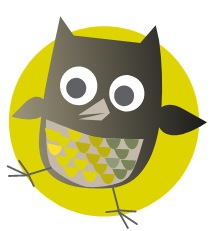The start of a new term is a great time to think about ways you can help your child with their schoolwork.
One key area you can really help your child with, whatever their age, is mental arithmetic. Mental arithmetic is being able to add, subtract, multiply and divide in your head and to solve problems using method and logic. These skills are the key foundations of maths skills, and speed and accuracy makes everything else in maths so much easier.
Building confidence in maths early on will pay back many times over. Repetitive learning increases confidence, improves speed and builds connections in the brain; skills that last a life time. Once your child has strong mental arithmetic abilities, they can tackle all sorts of problem solving.
Here are some fun and easy ideas of how you can support your child’s learning.
Key Stage 1 (Years 1 and 2)
In Key Stage 1, your child will:
- cover counting in twos, threes, fives and tens knowing both the multiplication and division facts for the twos, fives and tens multiplication tables
- work out a number that is one more, or one less than a given number
- work with number bonds to ten and twenty
- add and subtract two-digit numbers
- halve and double numbers.
Here are some ideas of how you can help them:
1. Flashcards
Don’t underestimate the need for repetition! It is amazing how many times a child needs to repeat times tables and number bonds before they are consolidated.
Flashcards are a great way of having fun while learning. Try taking them with you when you are out and about – spending a quick 5 minutes here and there can be fun and can make all the difference. Why not use the stopwatch on your phone for an element of challenge? Can they tell you the multiplication facts for the two times table in one minute? How about the division facts?
2. Number bond targets
Try this fun game to add, subtract or multiply to reach a target. Give your child a target of 10 and then shout out any one-digit number (including 0) and they have to add one other number to reach 10.
You can then vary this by making the target 0 and you shout out any one-digit number that they have to take away from 10 to reach 0. Once they know these bonds off by heart, try working with a target of 20.
3. Double and halve
This is a great game for waiting rooms, in the car – whenever you have a minute to spend. Say an even number and ask your child to double the number and then halve the number. Begin with a single-digit number, then up to 20 and then a multiple of 10.
Key Stage 2 (Years 3 to 6)
Your child will know their multiplication table from ones to twelves by the end of Year 4. They will be able to add and subtract three-digit numbers and to solve problems using more than one operation at a time.
Here are some fun ideas to support them with their learning:
1. More flashcards!
Flashcards continue to be a useful resource as your child gets older. There are many sets available, or it is easy to make your own.
Use the flashcards for all of the multiplication tables. Older children might enjoy seeing how many correct answers they can give in a set time. Doubling and halving bigger numbers and doubling and halving odd numbers are all brilliant ways of extending your child’s mental arithmetic skills.
Try these Times Tables flashcards from Bond.
2. Puzzles
Lots of puzzles require knowledge of number patterns. Puzzles such as Sudoku, number crosswords, maths mazes and number riddles are all excellent ways of learning by stealth!
Bond have a range of ‘brain training’ books and the number puzzles book is especially good for developing mental arithmetic. The Bond Brain Training for Kids page also has some free puzzles to try!
3. Logical thinking
Giving your child challenges that develop their logic and reasoning is perfect practice. Ask them to halve, double or triple a recipe, or to round up or down the cost of items in the supermarket and to give an estimated total. You could ask them to work out how much water to add to cordial, how many weeks of pocket money it would take to save up for something or how much the total cost will be at a café or day out.
4. Mental arithmetic games and apps
There are lots of great games and apps that make mental arithmetic more fun for children. Take a look at the free downloadable and interactive activities available on the Fun maths games and activities page.
More from Oxford Owl
- Blog post: Times tables tips
- Web page: What is the Year 4 multiplication tables check?
- Web page: Fun maths games and activities
Books and flashcards
Number Puzzles
Bond Brain Training for Kids
Age 7–11
Some monkeys are stuck in the maze – are you able to help them escape? From Sudoku grids to number riddles, switch on your puzzle powers to solve all sorts of challenges.
Over 100 fun number puzzles, including maths mazes, algebraic enigmas and fraction fun.
Times Tables Flashcards
Bond SATs Skills
Age 7–11
These flashcards provide rapid recall practice in all the times tables from 1 to 12, helping children to meet the new curriculum demands for Key Stage 2 maths. With questions on one side and the sum on the reverse, the flashcards can be used independently or with a parent, tutor or another child to quickly test knowledge. The cards also meet the new Year 5 requirements to understand square and cube numbers, extending these all the way up to 12 squared and cubed.



